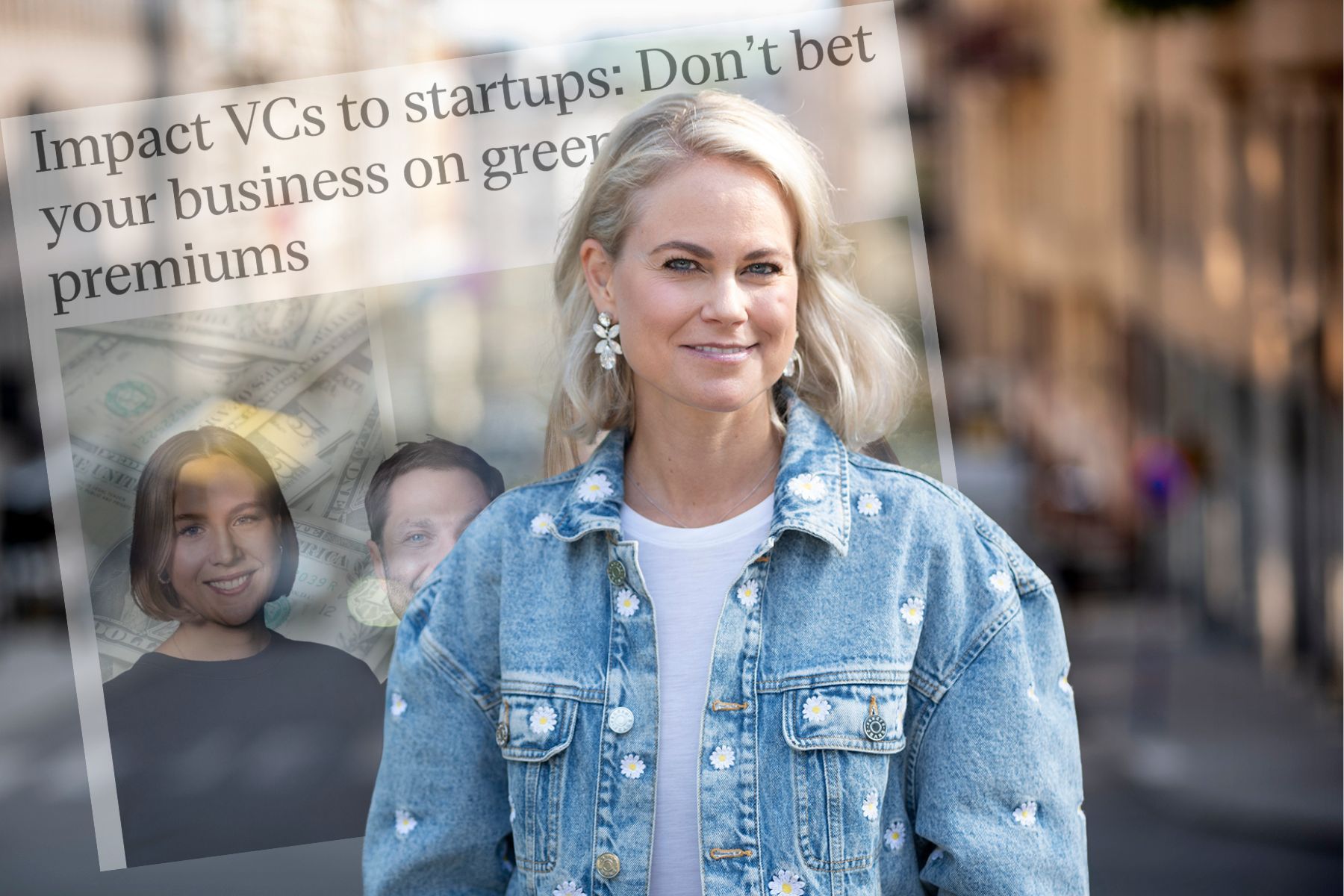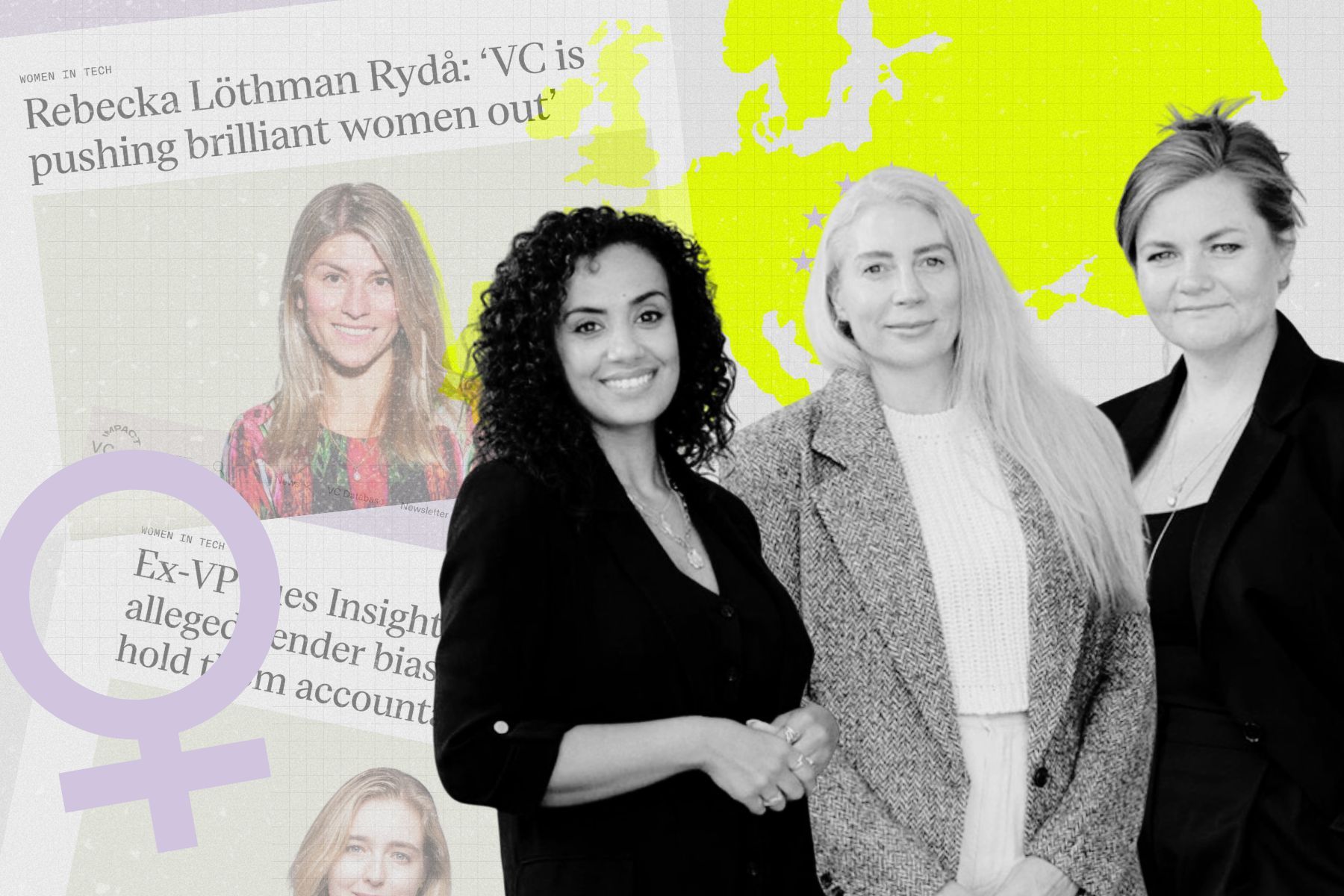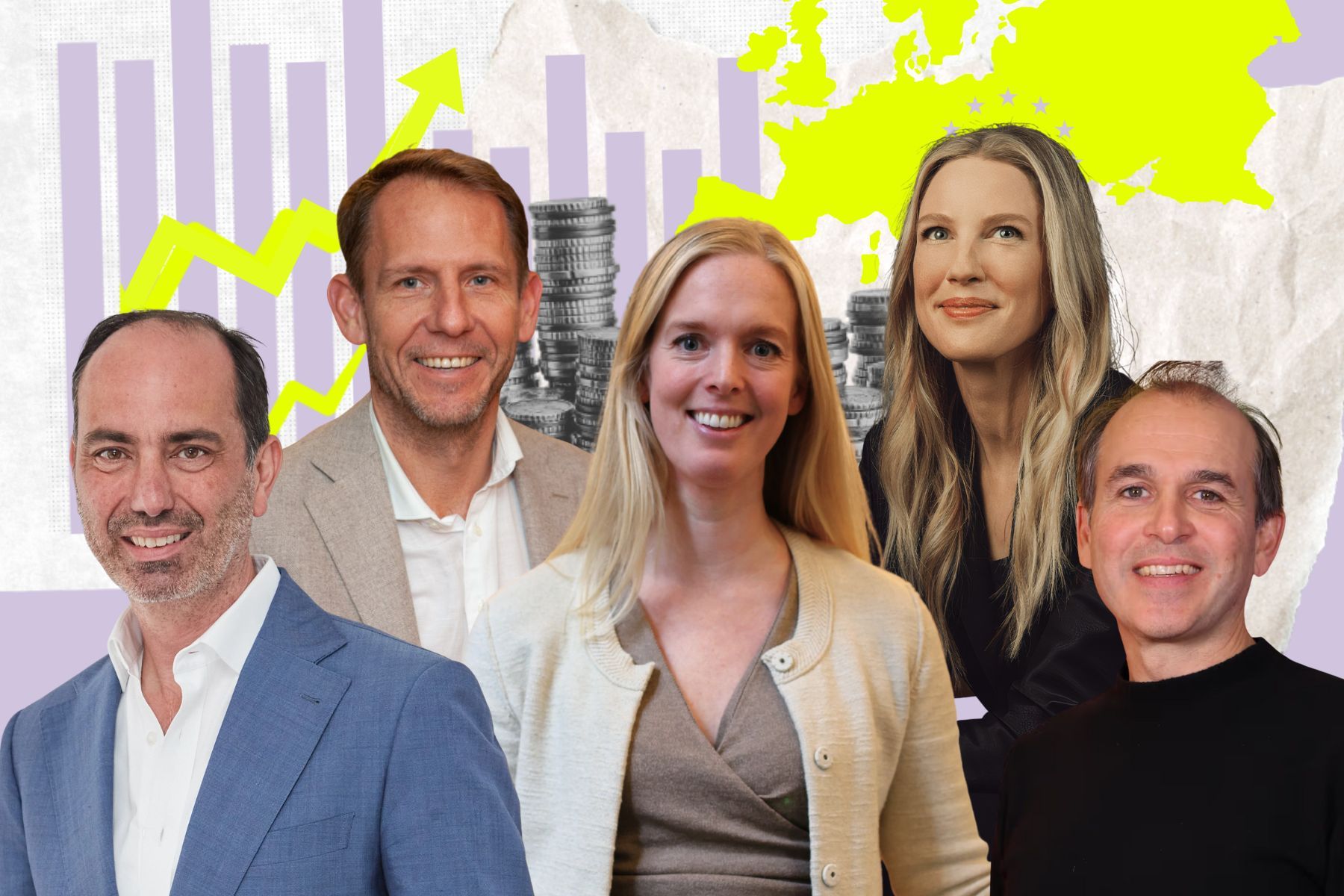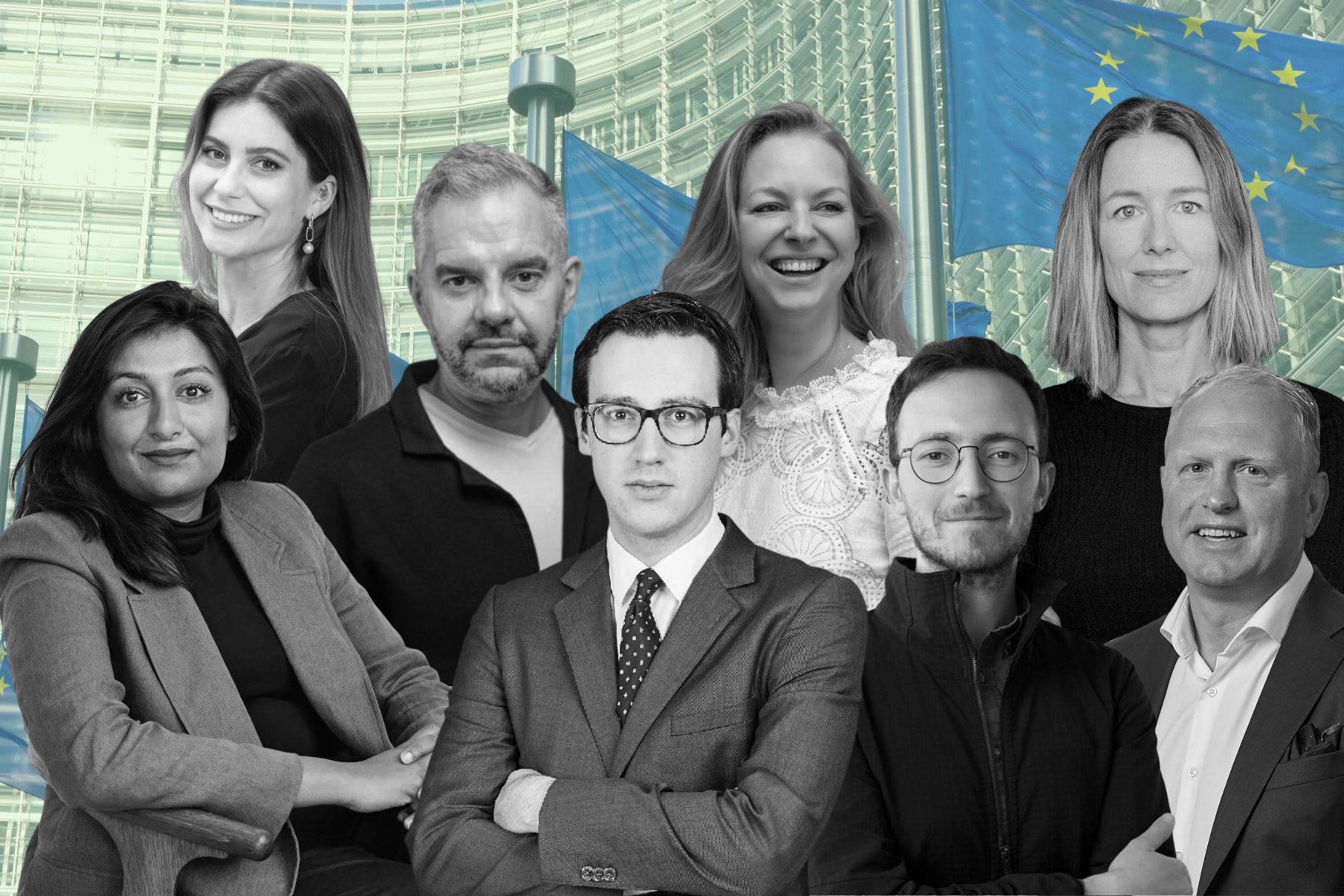Camilla Bergman: Investors are wrong about the death of the green premium
A growing number of investors are declaring that the so-called "green premium" is dead. But that’s a dangerously simplistic take – and one that probably says more about the investors themselves than it does about reality, writes Impact Loop’s Camilla Bergman.


"No one wants to pay extra for sustainability anymore. It has to be cheaper and better."
That’s the line I keep hearing from investors right now. Several we’ve interviewed at Impact Loop insist that the green premium – the extra cost for a more sustainable product – has vanished.
It's part of a broader shift in how business and finance talk about climate. An example from last week in Sweden: Susanne Najafi – one of Sweden’s best-known impact investors and co-founder of Backing Minds – publicly distanced herself from the label altogether.
"We are the definition of venture capital. We’re long-term. Impact – what counts as impact?" she said at a tech event hosted by media news outlet Breakit (my translation).
Backing Minds is now focusing on European self-sufficiency – and if a company happens to be good for the planet too, that’s "a bonus."
They’re far from alone. The climate, once talked about as a crucial question of our shared future, is now being relegated to a pleasant side effect. A "nice-to-have."
But back to the so-called death of the green premium – I’d argue there are two major flaws in that narrative.
First, plenty of people and companies not only can but want to pay a little extra for climate-smart products. A number of surveys show consumers say they’re willing to spend on average 10% more on sustainable goods. Sure, there’s always a gap between what people say and what they do – but just look at milk alternative Oatly, electric cars or locally produced food. The market clearly exists.
Second, there’s a point that Microsoft founder Bill Gates raised in his much-discussed essay Three Tough Truths About Climate, published last week. At first glance, it might seem as if he too dismisses the green premium he helped create.
But in fact, he argues that we should invest in companies with green premiums – and then help bring those premiums down to zero.
Gates is putting serious money into climate-tech ventures that are currently more expensive to produce, convinced they’ll become "the biggest growth industry of the 21st century" once prices fall. His stance runs directly counter to investors who refuse to back climate-smart innovation simply because it costs more. He shows it’s possible to be both an investor and take a stand (even though he’s now being criticised for having ‘Trumpified’ his stance on climate policy).
The Trump era and the Northvolt crash have shaken the impact investing world to its core. No one wants to come across as an idealist in the autumn of 2025. But pretending not to care about the climate isn’t the answer – and advising impact startups to drop climate as a USP definitely isn’t either.
Perhaps, in the end, this whole debate says more about the investors than it does about reality.
Get full access to Europe's new platform for impact news
- Quality journalism, interviews, investor profiles and deep-dives
- Daily newsletter with top stories, latest funding rounds and roundup to keep you in the loop
Keep reading – get in the loop!
- Håll dig i loopen med vårt dagliga nyhetsbrev (gratis!)
- Full tillgång till daglig kvalitetsjournalistik med allt du behöver veta inom impact
- Affärsnätverk för entreprenörer och investerare med månatliga meetups
Fortsätt läsa – kom in i loopen!
- Håll dig i loopen med vårt dagliga nyhetsbrev (gratis)!
- Full tillgång till daglig kvalitetsjournalistik med allt du behöver veta inom impact
- Affärsnätverk för entreprenörer och investerare med månatliga meetups









